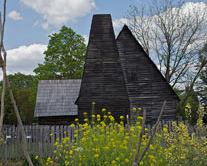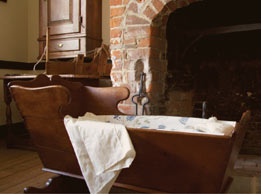When threatened with bankruptcy, Richard Hill had to sell most of his personal belongings, including people: His “property” included 31 slaves, 23 of whom he inherited from his father. These enslaved workers had raised tobacco, Indian corn, wheat, and livestock on thousands of acres of land in Anne Arundel County.

Meet Hannah and Her Family

The Hills were one of the merchant, or middling, families living in London Town during its prime years. Dr. Richard Hill was a landowner, merchant, ship owner and botanist. He married Deborah Moore in 1720 and they purchased three plots of land, totaling three acres, in London Town. Together they had twelve children; two died in infancy. Nine of their children were born in or near London Town, including their eldest daughter, Hannah.
The Hills had inherited wealth and made money of their own through various business enterprises. In the colonial period, a personal fortune could disappear quickly due to crop failure, trade complications or economic depression. Despite the prosperity and growth of London Town in 1739, Richard Hill was on the brink of financial disaster. As you read on, you will learn how this situation affected the Hill children, especially Hannah.


